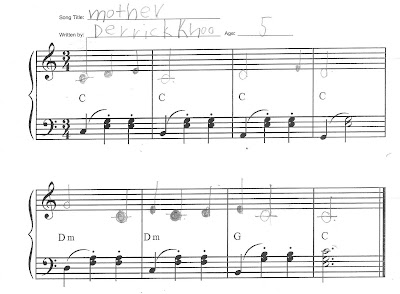19-20 July 2009
This article was contributed by Ms. Ivy Syamsir, Education Manager of Medan Musik.
For the first time, a Music Camp was organized by Medan Musik through the support and encouragement given by Rhythm MP. The Music Camp was held at a nearby hill resort in Northern Sumatera, at Hotel Mutiara in Brastagi over the weekend of 19 and 20 of July 2009.
The trip began with 150 enthusiastic students of ages 6 to 22 years gathering at Medan Musik at 8am. 3 buses were required to transport the participants to Brastagi. The Music Camp was packed with 2 full days of most interesting and informative music activities.
The trip began with 150 enthusiastic students of ages 6 to 22 years gathering at Medan Musik at 8am. 3 buses were required to transport the participants to Brastagi. The Music Camp was packed with 2 full days of most interesting and informative music activities.
Mr. Wilson Quah from Rhythm MP kicked start the event by making the students very excited about performing in an ensemble using homemade percussion instruments. The homemade instrument was a project that was initiated to prepare the students for the camp. The ensemble sounded interesting with a varied concoction of homemade percussion instruments, performed to the tune of ‘Good Morning”. Teachers and staff of Medan Musik also participated in the ensemble performance.
This event was followed by a more sober story telling session after teatime. Mr Wilson Quah took students and teachers on an eye-opening journey on the history, development and appreciation of jazz music. From Wilson’s illustrations and explanations, many of the students were busy taking down notes demonstrating their keenness and interests in understand how contemporary music, especially jazz has developed over the last century.

All the students did very well to answer the quiz at the end of the session. During dinner prior to the concert, some of the students were still excited that they were able to answer the quiz questions at the last session. While some students were busy preparing and dressing up in their very best for the evening’s concert, a handful of students were rehearsing concert/performing protocols that they had learned from Wilson before going back to their rooms to get ready.
At around 7:30pm, though it was running a little late, the audience and performers were finally settled down for the evening’s concert that was held in the resort’s foyer. We can see excited parents and performers eager for the evening’s concert to begin. Piano duets, violin with piano accompaniment, and solo piano performances were featured during the concert. The evening concluded with Wilson giving an appraisal of the performances, awarding certificates to all participants, performing for the audience and a photo session with the students. Everyone retired for the night feeling happy and excited after an eventful day.

The following day, more outdoor activities were organized for and it was another day of fun and laughs for the teachers, staff, students and parents. The camp concluded with a visit to a nearby fruit farm, just to pick and eat fresh strawberries.

The buses arrived back in Medan at 5:00pm. The feedback from parents and students were very encouraging with much positive comments and suggestions. There were requests for future music camps to be held over more days, as this inaugural event was a bit too short. There were also requests to have the camp held at other venues, like the resorts at Danau Toba and even overseas in Penang.








 Date: Friday O5 June 2009
Date: Friday O5 June 2009 6 to 11 a
6 to 11 a
























